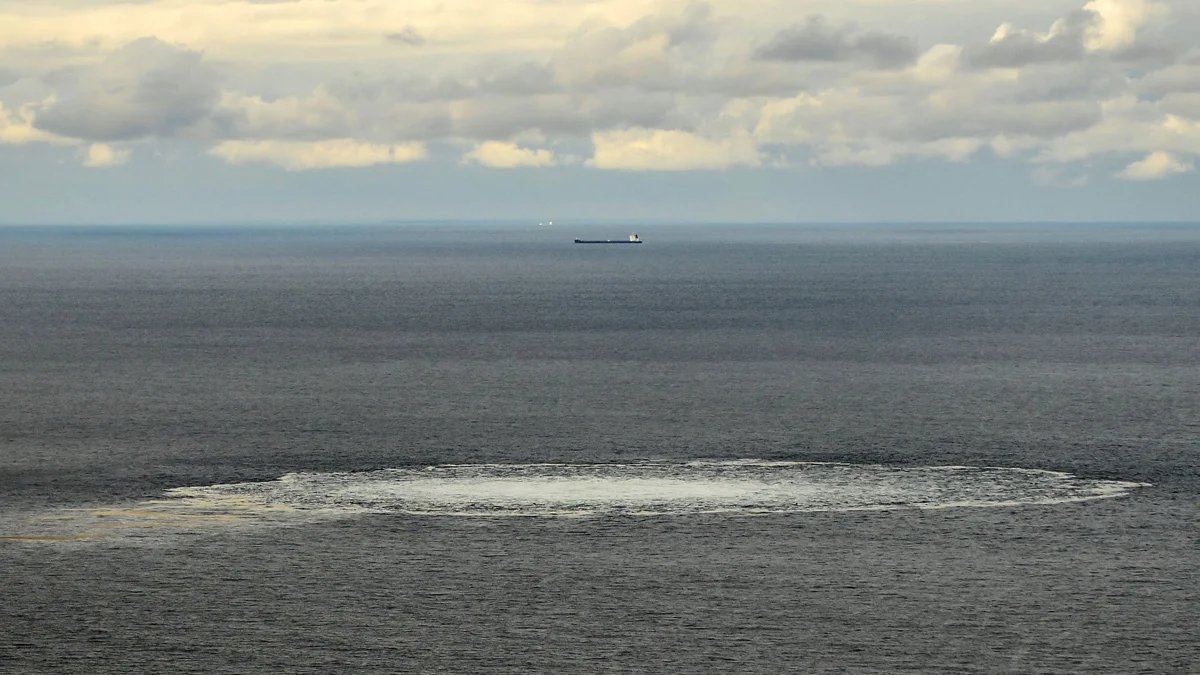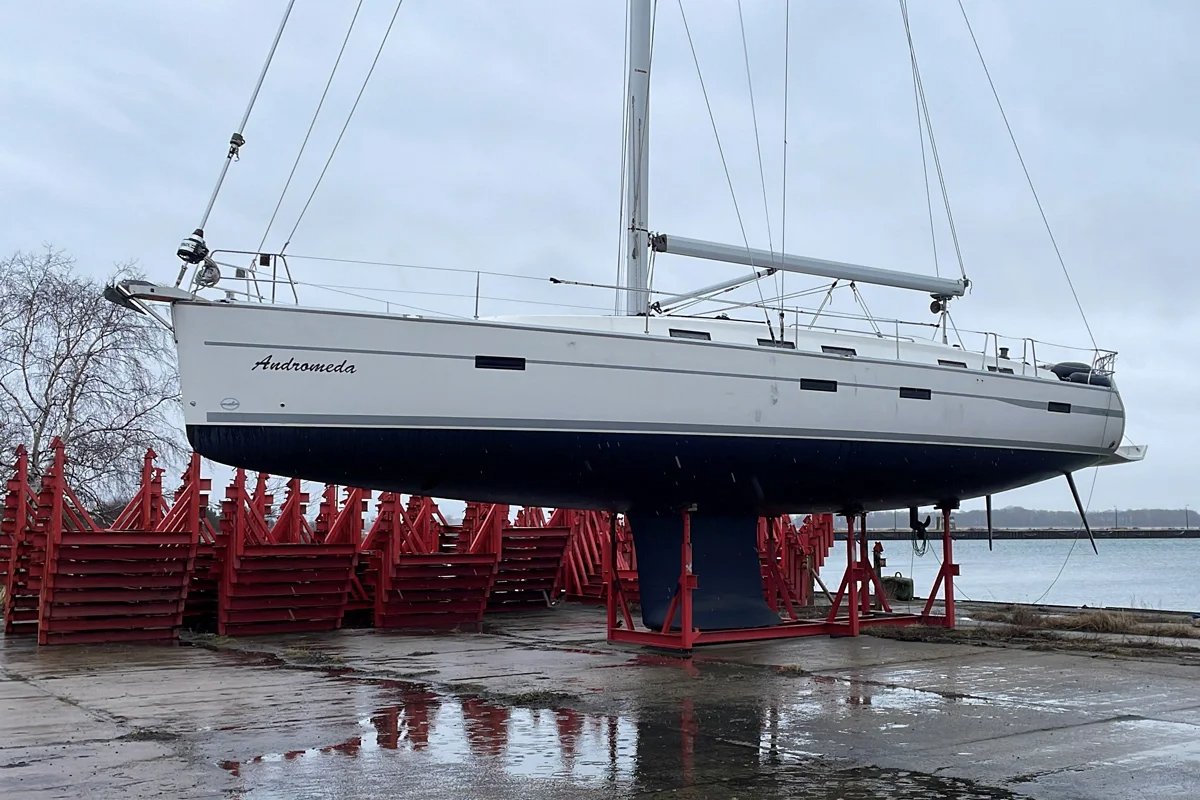
A gas leak on the damaged Nord Stream gas pipeline. Photo: Danish Defence / AFP / Scanpix
German investigators have now identified all the suspects in the sabotage operation on the Nord Stream 1 and Nord Stream 2 pipelines in September 2022, a joint investigation by Die Zeit, ARD and Süddeutsche Zeitung has established.
Investigators said the group was headed by Serhiy K., who was detained in the Italian resort town of Rimini earlier this month while on holiday with his family. The 49-year-old is a former member of the Ukrainian secret service, the SBU, but now works as a businessman, according to the investigation.
The investigation also named diving instructor Volodymyr Zhuravlev, for whom an arrest warrant was issued in June 2024. Zhuravlev was living in Poland at the time, where the authorities refused to extradite him to Germany. Zhuravlev then left the territory of the European Union.
The suspects also include an employee at the diving school where Zhuravlev taught, Yevhen Uspensky. The investigation believes that he was originally part of a sabotage group that intended to blow up the TurkStream gas pipeline, which carries natural gas from Russia to Turkey. When that attack was mothballed, Uspensky joined the group preparing to blow up the Nord Stream pipelines.
The investigation made no mention of Uspensky’s wife, Svitlana Uspenska, who had previously been named as a suspect. The investigation does, however, mention a 40-year-old diver by the name of Valeria T., who worked at the same diving school as the other defendants.
Another suspect was identified as 41-year-old businessman Rustem A., whose company paid for the Andromeda yacht which the saboteurs used to sail to the location where the explosives were planted.

The Andromeda yacht. Photo: Oliver Denzer / Reuters / Scanpix / LETA
Another suspect, 52-year-old Vsevolod K., may have died in the war with Russia, the investigation said. Before being sent to the front, he had undergone specialist training with the Bundeswehr.
The suspects used real passports with false names, according to the investigation, indicating support for the sabotage operation among the Ukrainian authorities.
Leaks occurred on the Nord Stream 1 and Nord Stream 2 gas pipelines in Denmark’s exclusive economic zone in late September 2022. German investigators subsequently suggested that the Ukrainian military could be involved in the explosions. Dutch military intelligence also intercepted information about potential sabotage being planned by Ukraine months before the explosions.
In November 2023, Der Spiegel wrote that the Nord Stream explosions had been coordinated by Colonel Roman Chervinsky, a former commander in Ukraine’s Special Operations Forces.
Nord Stream is a network of offshore pipelines under the Baltic Sea via which Russia provided Germany and western Europe with natural gas. Though completed, the €9.5-billion Nord Stream 2 pipeline was not certified by the German authorities following the start of the war, and never went into operation.
